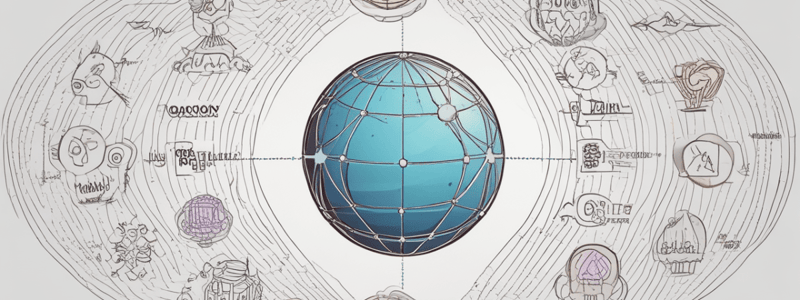Podcast
Questions and Answers
Match the following steps with their corresponding actions in the Process Documenter:
Match the following steps with their corresponding actions in the Process Documenter:
Step one = Identifying core processes that need to be consistently followed Step two = Brainstorming session with the leadership team Step three = Documenting and simplifying core processes
Match the following outputs with their corresponding steps in the Process Documenter:
Match the following outputs with their corresponding steps in the Process Documenter:
Core processes identified = Step one Simplified process = Step two Documented process = Step three Packaged process = Step one
Match the following activities with their corresponding steps in the Process Documenter:
Match the following activities with their corresponding steps in the Process Documenter:
Evaluating what's working and not working = Step two Selecting the appropriate format = Step three Brainstorming session = Step one Observing the current process = Step three
Match the following purposes with their corresponding steps in the Process Documenter:
Match the following purposes with their corresponding steps in the Process Documenter:
Signup and view all the answers
Match the following with their corresponding roles in the Process Documenter:
Match the following with their corresponding roles in the Process Documenter:
Signup and view all the answers
Match the following formats with their corresponding steps in the Process Documenter:
Match the following formats with their corresponding steps in the Process Documenter:
Signup and view all the answers
Study Notes
- The text discusses the three-step process documenter, which is a tool used in the EOS system to help leadership teams of entrepreneurial companies improve their core processes.
- Step one of the process documenter involves identifying the handful of core processes that need to be consistently followed. This is done through a brainstorming session with the entire leadership team, where they decide which processes need to be done the same way every time.
- Step two involves the owner of each process documenting and simplifying their core process. This is done by observing the current way the process is being done, evaluating what's working and not working, and looking for opportunities to improve efficiency and automation.
- Step three focuses on simplifying each core process by eliminating redundancies, unnecessary steps, and automating tasks that can be done automatically. The simplified process is then presented to the leadership team for review and approval.
- The last step is packaging the core processes in a format that is easy to find and use. This involves selecting the appropriate format, such as a word document, virtual reality, workflow diagrams, photos, or videos, and making sure the processes are easily accessible to those who need to use them.
Studying That Suits You
Use AI to generate personalized quizzes and flashcards to suit your learning preferences.
Description
Explore the three-step process documenter tool used in the EOS system to improve core processes of entrepreneurial companies. Learn about identifying core processes, documenting and simplifying them, and eliminating redundancies for efficiency and automation.



